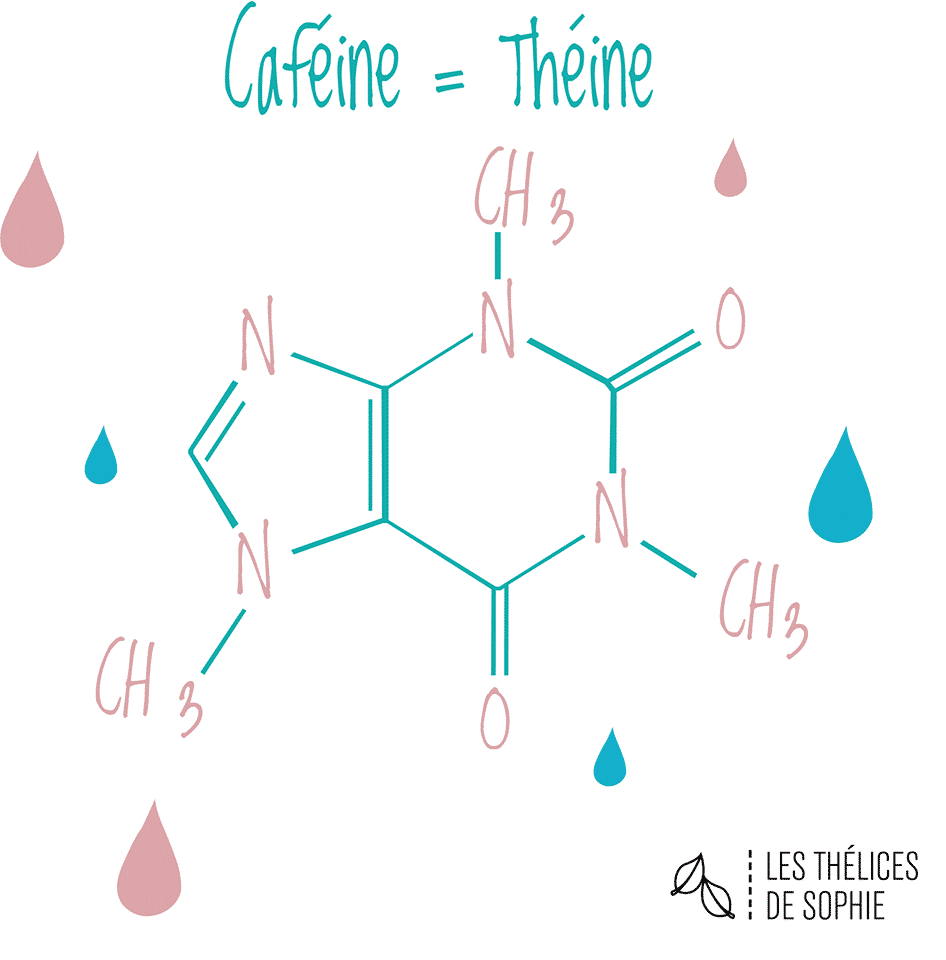

The leaves of black and oolong teas are rubbed against each other to favor oxidation (yao qing = rocking the green). That’s why many of us experience the effect of green teas few hours after having drunk it and it lasts long maybe one of the reasons why monks drink green tea during long meditations. There are also differences between different teas. Leaves for green and white teas are processed gently the molecules maintain the bonds and the body needs time to absorb them. That’s why coffee “gives a kick” and acts more quickly on the body than tea. Our body, to assimilate them, first has to destroy the bonds so caffeine in coffee is absorbed faster.
THEINE CAFFEINE FREE
While the caffeine molecules are quite free in coffee, in the tea leaves they are bonded to other substances. Caffeine dissolves in water at different rates, and the processing of the leaves play a major role in it.

To make everything even more complex, leaves with a lot of caffeine do not necessary result in tea with high caffeine concentration. But don't draw general conclusions: This doesn’t mean that bud-only teas have less caffeine! Both white teas are produced in the same region (Fuding, Fujian) from similar plants Yin Zhen is a bud-only tea while also the second and third leaves of the branch is plucked for Bai Mu Dan. In a laboratory experiment (1) 39 mg of caffeine were measured in Bai Mu Dan, but only 15 mg in Bai Hao Yin Zhen. The same variety of tea can have different levels of caffeine. Certainly on the variety of tea plant, but also on the environment (soil, climate), the season (young or ripe leaves) and the pluck (buds versus larger leaves). The quantity of caffeine in the tea leaves depends on many parameters. Green and black teas produced with leaves of the same bushes

The kind of tea (green, black, white…) is no indication for caffeine content. So a green tea can be rich or poor in caffeine and the same is valid for black tea. For example in Qimen County (Anhui, China), the tea farmers produce Qimen Hong Cha-Keemun, a famous black tea-and Huangshan Maofeng-a green tea-using the same tea plants. A contradiction? Not really. The kind of tea (white, black, green…) is determined by the processing, not by the nature of the leaves. So it doesn’t matter if you drink tea or coffee, your body will always absorb caffeine. However quantity and the absorption rate can differ substantially.īlack tea has no more caffeine than green tea… and green tea has no more caffeine than black tea. Already in the 19 th century, scientists discovered that theine and caffeine are exactly the same molecule. Let’s find out the truth about a topic that, indeed, is unclear and complex.Ĭoffee, black tea, green tea: Will I sleep tonight?įirst of all let’s get rid of two misleading popular beliefs. Theine is not lighter than caffeine. Tea vendors do often provide contradictory information about theine content in tea and the web does not really help either. “I like tea, I like coffee, but I want to sleep at night.


 0 kommentar(er)
0 kommentar(er)
